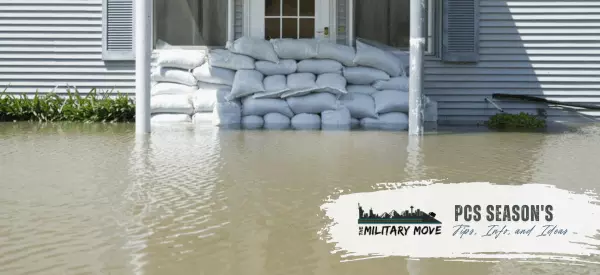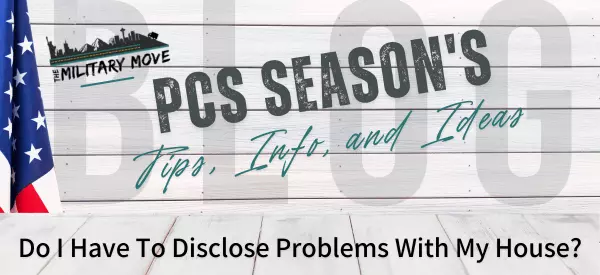
Do I Need Flood Insurance?
Whether you need flood insurance depends on several factors, including where you live, your risk of flooding, and your financial situation. Here are some key points to consider: 1. Location: The most critical factor in determining whether you need flood insurance is your location. If you live in an area prone to flooding, such as a floodplain, coastal region, or near a river, you are at higher risk and may be required to have flood insurance. FEMA (Federal Emergency Management Agency) designates flood zones and can provide information about your property’s flood risk. 2. Mortgage Requirement: If you have a mortgage on your home, your lender may require you to carry flood insurance if your property is in a high-risk flood zone. Lenders want to protect their investment in case of flood damage. 3. Flood Risk: Even if you’re not in a high-risk area, it’s essential to assess your flood risk. Flooding can occur from various sources, including heavy rainfall, snowmelt, storm surges, and dam failures. If you live in a low- to moderate-risk area, you may still choose to purchase flood insurance for added protection. 4. Financial Situation: Consider your ability to absorb the financial impact of flood damage. Standard homeowners’ insurance policies typically do not cover flood damage. If you can’t afford to repair or replace your home and belongings without insurance, flood insurance may be a wise investment. 5. Cost: The cost of flood insurance varies depending on your location and the level of coverage you choose. FEMA’s National Flood Insurance Program (NFIP) offers coverage in many areas, and private insurers may also provide policies. You can obtain quotes to determine the cost of coverage for your specific situation. 6. Government Assistance: In the event of a federally declared disaster, you may be eligible for government assistance, but this assistance is often in the form of loans that need to be repaid. Having flood insurance can provide more immediate and comprehensive coverage. 7. Peace of Mind: Even if you’re not legally required to have flood insurance, it can provide peace of mind knowing that you have financial protection in case of a flood-related disaster. It’s essential to assess your specific circumstances, consult with local insurance experts, and review FEMA’s flood maps to determine your flood risk. While flood insurance may not be necessary for everyone, it’s a valuable safeguard for those at risk of flooding, and it can help protect your home and assets in the event of a flood-related disaster. If you know someone looking to move near a military base – please send them our website below where we provide loads of base information. Click here to access our PCS Map Our military map has lots of resources for every military base within the United States including schools, base housing, colleges, Facebook groups, and connections to local real estate agents that are military affiliated and provide OUR credit

Do I Have To Disclose Problems With My House?
I know of issues with my home. Do I need to disclose them? Yes, in most jurisdictions, you are legally obligated to disclose known problems with your house when selling it. This is typically done through a document called a “Seller’s Disclosure” or “Property Disclosure Statement,” which varies in format and requirements depending on your location. The purpose of this disclosure is to inform potential buyers about the condition of the property, including any defects or issues that could affect its value or safety. The specific requirements for what you need to disclose can vary by state or country, but common items to disclose may include: 1. Structural issues: Such as a leaky roof, foundation problems, or issues with walls or floors. 2. Environmental concerns: Such as the presence of asbestos, lead-based paint, or mold. 3. Mechanical systems: Problems with heating, cooling, plumbing, or electrical systems. 4. Pest infestations: If your property has or had issues with pests like termites. 5. Water damage or flooding history: Any history of water damage or flooding, even if it has been repaired. 6. Legal or zoning issues: Such as property line disputes or violations of local zoning laws. 7. Repairs or renovations: Details about any recent repairs, renovations, or remodeling work done on the property. Failing to disclose known issues could lead to legal consequences, such as the potential for the buyer to sue you for nondisclosure after the sale. It’s generally in your best interest to be honest and transparent about the condition of your property to avoid future legal problems. To ensure compliance with local laws and regulations regarding property disclosure, it’s advisable to consult with a real estate attorney or a qualified real estate agent who can guide you through the process and provide specific advice based on your location and circumstances. If you know someone looking to move near a military base – please send them our website below where we provide loads of base information. Click here to access our PCS Map Our military map has lots of resources for every military base within the United States including schools, base housing, colleges, Facebook groups, and connections to local real estate agents that are military affiliated and provide OUR credit.

Should I Pay For Points When Buying a House?
Whether or not you should pay for points when buying a house depends on your specific financial situation and long-term goals. Points, in the context of a mortgage, are a form of prepaid interest that can lower your mortgage interest rate over the life of the loan. Each point typically costs 1% of the total loan amount and can lower your interest rate by a certain percentage, often 0.25% per point, although this can vary. Here are some factors to consider when deciding whether to pay for points: 1. Your Financial Situation:– Do you have the funds available to pay for points upfront without straining your finances?– Will paying for points affect your ability to cover other homeownership costs like a down payment, closing costs, and moving expenses? 2. How Long You Plan to Stay in the Home:– If you plan to stay in the home for a long time, paying for points can make sense because the lower interest rate will save you money over the life of the loan.– If you plan to sell or refinance the home relatively soon, it may not be cost-effective to pay for points, as you may not recoup the upfront cost through interest savings. 3. Your Monthly Budget: – Consider how paying for points will affect your monthly mortgage payment. A lower interest rate will reduce your monthly payment, which can be beneficial if it helps you afford the home comfortably. 4. Break-Even Point:– Calculate the break-even point to determine how long it will take to recoup the upfront cost of the points through lower monthly payments. If you plan to stay in the home beyond the break-even point, paying for points can be financially advantageous. 5. Consult a Mortgage Professional:– Talk to a mortgage broker or lender to get personalized advice. They can provide you with specific cost-saving scenarios based on your loan amount, interest rate, and the number of points you’re considering. Let’s look at a situation where it may or may not make sense. Let’s say you are buying a house and you are considering whether or not to pay for points. The mortgage will cost $2,000 a month without paying any points (the par rate). You decide to pay for 2 points and this costs you $3,600 – remember this is just a made-up problem to understand the concept. That 2 points will save you $50 a month on your mortgage (or $1,950). Should you buy the points? Well $50 x 12 = $600. This is how much you will save in 1 year. But it costs $3,600 total. Therefore, you will need to be in the home for at least 6 years before those points will start to pay off. If you plan to be in the home for over 6 years, you may want to consider it (should you have the funds to do so). If you plan to be in the home less than that amount, then it may not be worth buying them. In summary, paying for points can be a good financial strategy if you plan to stay in the home for an extended period and have the financial means to do so without jeopardizing your other financial goals. However, it’s essential to run the numbers and consider your individual circumstances to determine whether paying for points makes sense in your particular situation. If you know someone looking to move near a military base – please send them our website below where we provide loads of base information. Click here to access our PCS Map Our military map has lots of resources for every military base within the United States including schools, base housing, colleges, Facebook groups, and connections to local real estate agents that are military affiliated and provide OUR credit
Categories
Recent Posts











